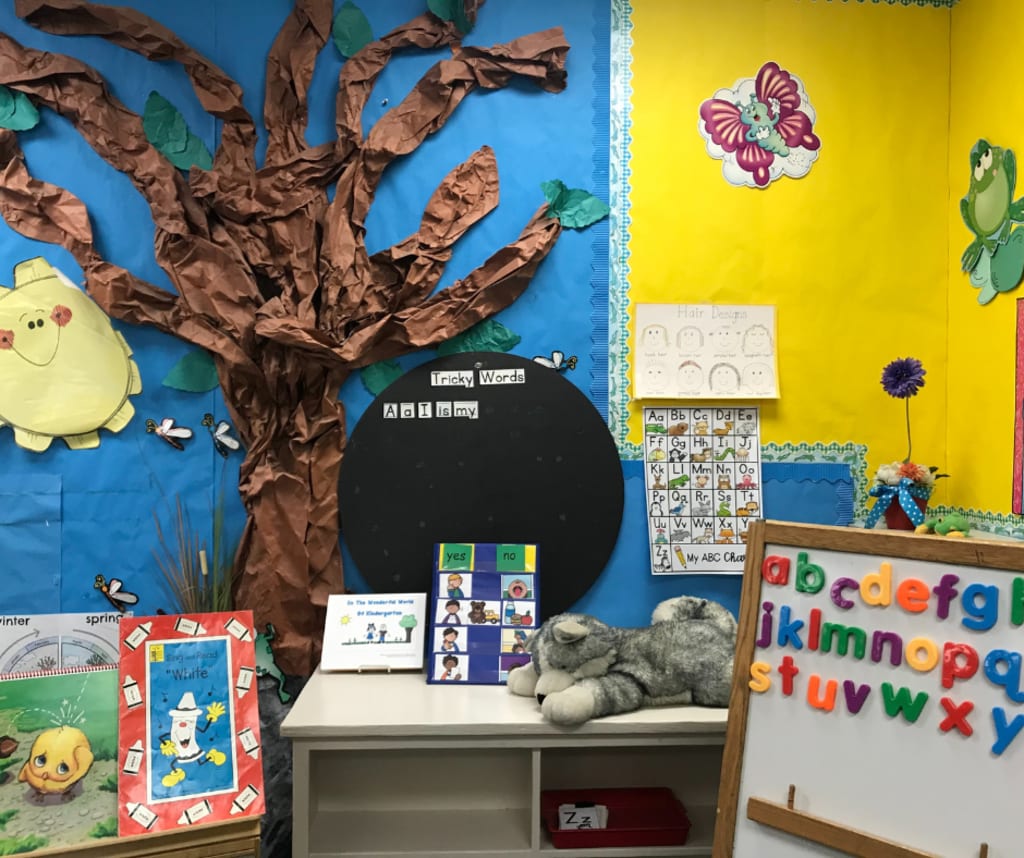Promoting Environmental Awareness in Nagasandara's Preschools
Preschool in Nagasandara

In recent years, the need for environmental awareness has become increasingly important, and this extends to educational institutions, including preschools. Preschools play a crucial role in shaping young minds and instilling values that can have a lasting impact.
By promoting environmental awareness in Nagasandara's preschools, we can create a generation of environmentally conscious individuals who will actively contribute to a sustainable future.
This article aims to explore effective strategies for promoting environmental awareness in Nagasandara's preschools, empowering young children to become environmental stewards.
Incorporating Nature-Based Learning
One effective way to promote environmental awareness in preschools is by incorporating nature-based learning into the curriculum. Preschools can create outdoor classrooms or nature corners within their premises where children can engage with the natural environment.
Teachers can organize activities such as gardening, nature walks, and animal observations to help children develop a deep connection with nature. By fostering a sense of wonder and appreciation for the natural world, children are more likely to develop a lifelong commitment to environmental sustainability.
Engaging in Waste Reduction Practices
Teaching young children about waste reduction practices can have a significant impact on their environmental consciousness. Preschools can encourage recycling by providing separate bins for different types of waste, such as paper, plastic, and organic waste. Teachers can explain the importance of recycling and guide children on proper waste segregation. Moreover, preschools can minimize the use of single-use plastics by promoting the use of reusable water bottles and lunch containers. By actively involving children in waste reduction practices, preschools can instill eco-friendly habits from an early age.
Implementing Energy Conservation Measures
Another crucial aspect of promoting environmental awareness is teaching children about energy conservation. Preschools can demonstrate simple yet effective ways to save energy, such as turning off lights when not in use and using natural light whenever possible. Additionally, teachers can educate children about the importance of conserving water and encourage them to practice water-saving habits, such as turning off taps while brushing teeth. By integrating energy conservation measures into daily routines, preschools can instill a sense of responsibility towards the environment.
Educating about Wildlife Conservation
Nagasandara preschool can also play a vital role in educating children about wildlife conservation. Teachers can introduce children to the diverse flora and fauna found in their surroundings through interactive sessions and visual aids. Preschools can invite wildlife experts or organize visits to local parks or conservation centers to expose children to the wonders of wildlife. By fostering empathy and understanding towards animals, preschools can instill a sense of responsibility toward preserving biodiversity and protecting endangered species.
What Makes a Preschool Program Effective: Key Features to Look For
Promoting Sustainable Practices at Home
To reinforce the lessons learned at preschool, it is essential to involve parents and caregivers in promoting sustainable practices at home. Preschools can organize workshops or distribute informational materials to parents, highlighting simple ways to incorporate eco-friendly habits into their daily lives. Suggestions can include using energy-efficient appliances, reducing water consumption, and adopting eco-friendly alternatives for household products. By creating a strong partnership between preschools and families, the impact of environmental awareness can be extended beyond the classroom.
Conclusion
In conclusion, promoting environmental awareness in Nagasandara's preschools is crucial for cultivating a generation of environmentally conscious individuals. By incorporating nature-based learning, engaging in waste reduction practices, implementing energy conservation measures, educating about wildlife conservation, and promoting sustainable practices at home, preschools can shape young minds to become passionate advocates for the environment.
Through these efforts, Nagasandara's preschools can contribute to a sustainable future by fostering a deep appreciation for nature and instilling lifelong habits of environmental stewardship in their students. Let us strive to create a greener and more sustainable world, starting from the earliest years of education.
Frequently Asked Questions (FAQ)
Q1: Why is promoting environmental awareness important in preschools?
A1: Promoting environmental awareness in preschools is important because it helps instill values of sustainability and responsibility towards the environment from an early age. By raising awareness among young children, we can create a generation that actively contributes to environmental conservation and a sustainable future.
Q2: How can preschools incorporate nature-based learning?
A2: Preschools can incorporate nature-based learning by creating outdoor classrooms or nature corners within their premises. They can organize activities such as gardening, nature walks, and animal observations to engage children with the natural environment and develop a deep connection with nature.
Q3: What waste reduction practices can preschools adopt?
A3: Preschools can adopt waste reduction practices by encouraging recycling. They can provide separate bins for different types of waste, promote waste segregation, and minimize the use of single-use plastics. By involving children in these practices, preschools can instill eco-friendly habits early on.
Q4: How can preschools teach energy conservation?
A4: Preschools can teach energy conservation by demonstrating simple practices like turning off lights when not in use, utilizing natural light, and educating children about water conservation. By integrating these measures into daily routines, preschools can help children develop a sense of responsibility towards conserving energy and resources.
Q5: What role do preschools play in wildlife conservation education?
A5: Preschools can play a crucial role in wildlife conservation education by introducing children to local flora and fauna through interactive sessions and visual aids. They can organize visits to parks or conservation centers and invite wildlife experts to inspire empathy and understanding towards animals and promote the preservation of biodiversity.
Q6: How can parents be involved in promoting environmental awareness at home?
A6: Preschools can involve parents in promoting environmental awareness at home by organizing workshops or distributing informational materials. They can provide suggestions for eco-friendly practices such as using energy-efficient appliances, reducing water consumption, and adopting sustainable alternatives for household products.
Q7: What impact can promoting environmental awareness in preschools have?
A7: Promoting environmental awareness in preschools can have a significant impact by shaping young minds to become passionate advocates for the environment. It helps create a foundation of knowledge and values that can extend beyond the classroom, leading to a greener and more sustainable society in the long run.
About the Creator
Vikash Kumar
Hello, I am an SEO executive and blogger and I share my content about education, technology, governments, travel, etc.






Comments
There are no comments for this story
Be the first to respond and start the conversation.